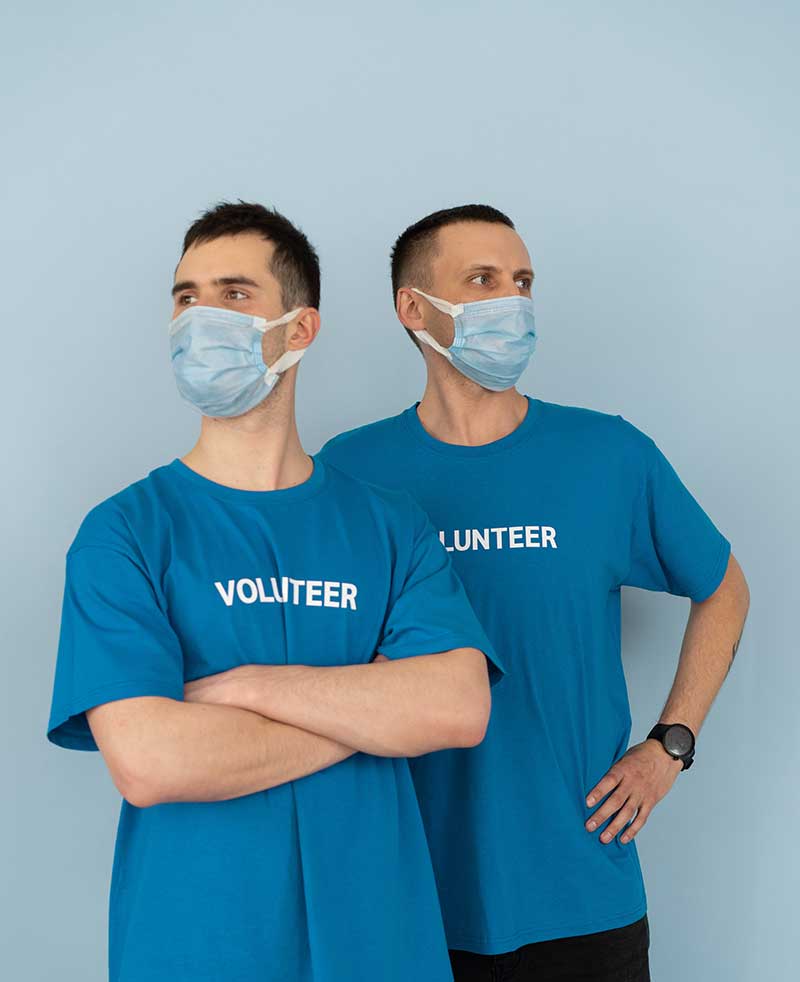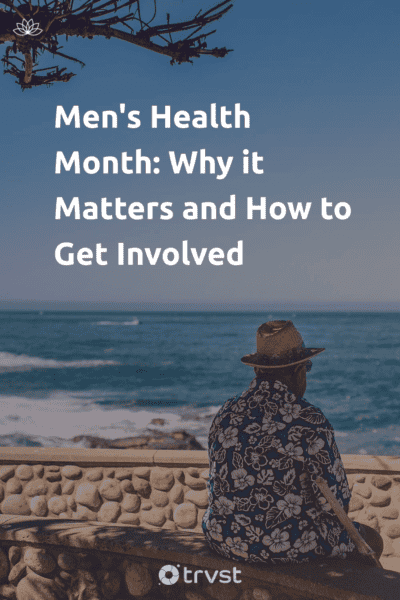Men's Health Month: Why it Matters and How to Get Involved
June is Men's Health Month, 30 days dedicated to increasing awareness about men's unique health challenges. June is a month that raises awareness of these health issues, from prostate and testicular cancer to mental health and cardiovascular disease. To help address these concerns, Men's Health Month emphasizes the importance of regular check-ups, early detection, and preventative care.
Throughout the month, numerous health initiatives, screenings, and educational programs inspire men to actively participate in their health journey.
Read on to learn more about this observance and ways to get involved and support men’s health.
Featured in: June - Awareness Months, Days & Observances.
Men’s Health Month History and Background
National Men's Health Month came into being in 1994 thanks to the efforts of Senator Bob Dole and Congressman Bill Richardson.
With Father's Day falling in the same month, this observance recognizes men's role in families and society while raising awareness about preventable health issues affecting men and boys. Much of it focuses on promoting early detection and treatment.
Armin Brott and Jed Diamond founded the Men's Health Network (MHN) in 1992, two years before the inception of Men's Health Month. This influential organization organized events, health screenings, and distributing educational materials throughout the month.
In parallel, Men's Health Week emerged the same year. This weekly observance takes place during the week leading up to Father's Day.
Growing recognition

Men's Health Month has gained international recognition, with countries like Canada, the United Kingdom, and Australia joining the observance.
President Bill Clinton signed the first Men's Health Week Proclamation in 1994. Since a tradition carried on by each subsequent U.S. president.
The "Wear Blue" campaign encourages people to don blue the Friday before Father's Day. This symbolic gesture has helped grow the campaign's reach and promote a dialogue around the preventable health problems men face.
With the combined impact of these efforts, Men's Health Month has made significant strides in spreading awareness and enhancing research funding and resources in men's health programs.
The Cause and Its Challenges
Men's Health Month is a time to highlight the distinct health challenges faced by men. Many of these challenges are rooted in societal expectations resulting from a need for more awareness about preventive care's importance.
The campaign primarily focuses on issues such as prostate cancer, testicular cancer, mental health, and cardiovascular diseases. However, men's aversion to seeking medical help—attributed to stigma or the misconception that discussing health concerns equates to weakness2—aggravates these health problems.
Research indicates that men visit doctors less frequently than women, which places them at a heightened risk for late-stage diagnosis of severe health conditions. This fact raises significant concerns when considering prostate cancer, the second most common cancer in men globally, and testicular cancer, which predominantly affects young men aged 15-34.
Physical and mental health
In addition to physical health, men's mental health is a critical concern, often eclipsed by society's pressure to embody strength and stoicism. Consequently, men find themselves three times more likely to die by suicide than women.
Men's Health Month endeavors to confront these challenges by urging men to take charge of their well-being and undertake regular checkups. Furthermore, fostering an environment that enables men to discuss health concerns without judgment helps encourage men to take better care of themselves and their friends.
5 Important Facts About Men’s Health
- Heart disease poses a formidable threat, topping the list as the leading cause of male death1. To combat this risk, men must embrace healthy habits like regular physical activity, a well-balanced diet, and managing stress levels effectively.
- A significant 1 in 9 will receive a prostate cancer diagnosis during their lifetime. Fortunately, early detection through regular health screenings can make all the difference.
- Sadly, addressing mental health issues in men is often hindered by societal stigmas and a lingering reluctance to seek help. By fostering open dialogue, we can empower men to access professional support for depression, anxiety, and other psychological challenges.
- Although testicular cancer is relatively rare, it remains the most common cancer affecting young men aged 15-35. Regular self-examinations and consistent doctor visits are key to early detection, leading to more effective treatment options.
- Risky behaviors, including excessive alcohol consumption and tobacco use, are more prevalent among men, contributing to various health problems.
Related: Read our mental health sayings and wellness quotes for some inspiring words. If you are concerned about your health, always contact a healthcare professional as soon as possible.
Efforts and Initiatives

Numerous organizations and communities worldwide have banded together to tackle men's health issues and back causes like Men's Health Month. A prime example is the Movember Foundation. Each year, during November, the Movember campaign urges men to grow mustaches, sparking conversations and raising vital funds for research into prostate cancer, testicular cancer, mental health, and suicide prevention.
Another effort worth mentioning is the Men's Shed Movement. Men's Sheds offer a friendly environment where men can socialize, partake in activities, and discuss health matters. By building camaraderie and reducing isolation, these spaces significantly enhance the emotional well-being of those involved. Moreover, the Men's Shed Movement encourages an atmosphere where men feel at ease talking about vital health topics such as managing stress and blood pressure.
Lastly, the annual National Men's Health Gathering in Australia fosters collaboration among professionals, policymakers, and community members. This conference provides a platform for stakeholders to present research findings, exchange ideas on men's health issues, and devise strategies to boost men's health outcomes.
How to Get Involved and Support Men’s Health Month

Participating in awareness-raising activities is a simple yet powerful way to support Men's Health Month. You could join charity runs or bike rides, attend workshops, or even host a health fair in your local community.
These events raise awareness of the cause and create a supportive space to discuss men's overall health issues openly. Don't forget to share experiences and educational resources on social media – this helps amplify the message to reach even more people.
Education and advocacy are vital for supporting Men's Health Month. Consider attending conferences or joining support groups to deepen your understanding of men's health. You'll find experts and peers sharing the latest research and best practices in these settings.
A powerful way to advocate for men's health is by contacting local government representatives to push for policies and funding in this area, which can benefit the community in the long run.
Volunteering and fundraising can significantly impact men's health organizations. Lend a hand by partnering with groups like the Men's Health Network, Prostate Cancer Foundation, or Movember Foundation.
You could organize fundraising events, such as charity auctions or bake sales, to collect donations for crucial research and support services. Get your friends and family involved in these efforts – working together can amplify your impact and, ultimately, contribute to improving men's health on a broader scale.
Conclusion
By spreading awareness and sparking conversations, we can unite to tackle preventable diseases, encourage early detection, and ultimately enhance the well-being of men worldwide. Our collective participation in this cause is crucial in closing the health gap between men and women.
We invite you to join us in championing men's health – attend local events, connect with others on social media, and inspire the men in your life to focus on their health.
Men's Health Month FAQs
Men's Health Month is a national observance in the United States that aims to raise awareness about various health issues that affect men and boys.
Men's Health Month is celebrated every year in June.
Men's Health Month is important because it helps to bring attention to men's specific health challenges and encourages them to take action to improve their health and well-being.
Common health issues that affect men include heart disease, prostate cancer, diabetes, depression, and obesity.
You can support Men's Health Month by spreading awareness about the cause, encouraging the men in your life to prioritize their health, and donating to organizations that support men's health initiatives.
| 1 |
GBD 2017 Causes of Death Collaborators. (2018). Global, regional, and national age-sex-specific mortality for 282 causes of death in 195 countries and territories, 1980–2017: a systematic analysis for the Global Burden of Disease Study 2017. The Lancet, 392(10159), 1736-1788. |
| 2 |
Galdas, P. M., Cheater, F., & Marshall, P. (2005). Men and health help-seeking behaviour: literature review. Journal of Advanced Nursing, 49(6), 616-623. |

